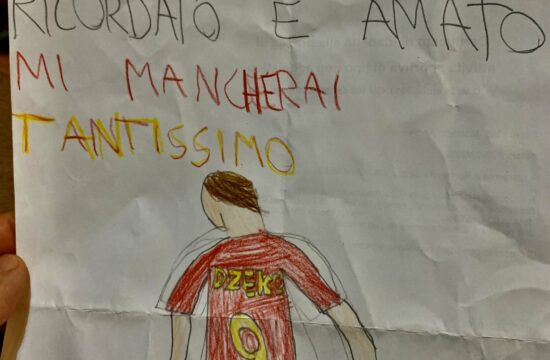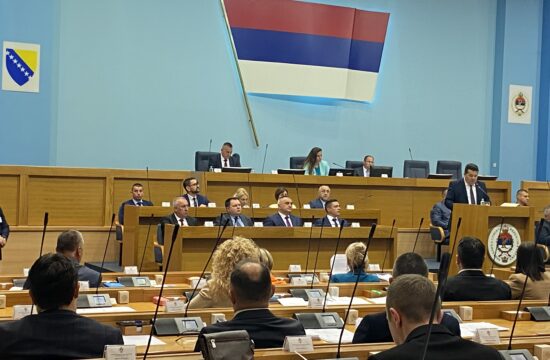
A statement made by Croatia’s Prime Minister Andrej Plenkovic who mentioned the possibility of a reorganization of the territorial setup of Bosnia and Herzegovina prompted mixed reactions in Bosnia with some Bosnian Croat representatives supporting Plenkovic’s position and opponents seeing it as his party’s usual pre-election manoeuvre.
Plenkovic, who is also the leader of Croatia’s Croat Democratic Union (HDZ), told the paper Vecernji list that “the responsibility of the representatives of the three (majority) peoples and political parties is to reach an agreement on reorganising the territorial setup in order to establish more fair political and economic control on all government levels and mechanisms that would ensure true equality among the three peoples and others.”
A day later, Plenkovic said that he did not imply a “territorial reorganisation of Bosnia and Herzegovina” but was commenting on how to handle the issue of coexistence of Bosnia’s three constituent peoples.
“The position of the HDZ, as well as of the Government and our state policy is that the relations between the constituent peoples and every issue of the organization of Bosnia and Herzegovina is primarily on the peoples of Bosnia and Herzegovina, political parties and on institutions of the country,” Plenkovic said.
He also criticised Croatia’s Social Democratic Party for not voting for a Declaration on the rights of Croats in Bosnia which the country’s parliament had adopted at the end of 2018.
“We are not just advocating for the equality of Croats in Bosnia and Herzegovina, but we have also put a lot of effort into the progress of reforms throughout Bosnia and Herzegovina, we have and all its peoples achieving progress in reforms, helped them on their European path, and we continue to advocate for that. Both regarding the EU and NATO,” he said.
The position of Croats in Bosnia is always being brought up ahead of elections, said the head of the Social Democratic Party (SDP) in Bosnia, Nermin Niksic, adding that the HDZ that always portrays itself as the protector and advocate for Croats in Bosnia.
Niksic argued that Plenkovic’s statement was part of his party’s campaign since elections are to take place in Croatia on July 5 and that the Croatian Prime Minister is trying to appeal to voters and draw attention away from the problems in his own country.
“It’s obvious that this concern (for Croats in Bosnia) appears from one election to the next. Every four years, when they (Croatian political leaders) remember that they need votes, this issue is used for election purposes through inflammatory rhetoric and supposed concern,” Nikic said.
“It’s obvious that neither Mr. Plenkovic, nor anybody else in our neighbourhood or further, for example Turkey, will be deciding on the fate of Bosnia and Herzegovina. Bosnia’s citizens and peoples will be the ones to decide on Bosnia’s fate and its territorial organisation,” he stressed.
He added that it makes sense for Plenkovic to criticise the main opponent of his party at this time because surveys show that Croatia’s SDP is doing better with voters than the HDZ.
“The obvious message Plenkovic is trying to send with this is that only the HDZ is concerned about Croats in Bosnia and Herzegovina, he said, adding that the result of the care is such that Croats are increasingly leaving Bosnia and pursuing a better life elsewhere.
However, one of the top representatives in Bosnia’s Croat National Council (HNS), an organisation of Bosnian Croat parties, Bozo Ljubic, believes Bosnia does need a restart and a different setup as it has been proven that Bosnia can not function the way it is set up since the Dayton Peace Agreement, which includes the constitution.
The HNS has been advocating for a so-called “third entity” in Bosnia that would be dominated by Bosnians Croats who currently share an entity with the Bosniaks, while the Serbs have their own.
“There are 14 governments, 14 constitutions, more than 150 ministers, a halt on Bosnia’s European path, we are lagging behind our neighbours. This is a state of a quasi-confederation, of two quasi-state entities. One dominated by Serbs and the other, the Federation (FBiH) with the rising dominance of Bosniaks where the third constituent peoples are unable to elect their political representatives, and all of this combined is generating a crisis,” he said.
Croatia is a proven friend to Bosnia and Plenkovic is known as a “European leader,” Ljubic said, adding that “European solutions are the only possible ones” for the country and that two EP resolutions, which the Croatian PM participated in, have proposed Bosnia to be reconstructed “based on decentralization, subsidiarity, federalism and the legitimate representation of constituent peoples and citizens.”






